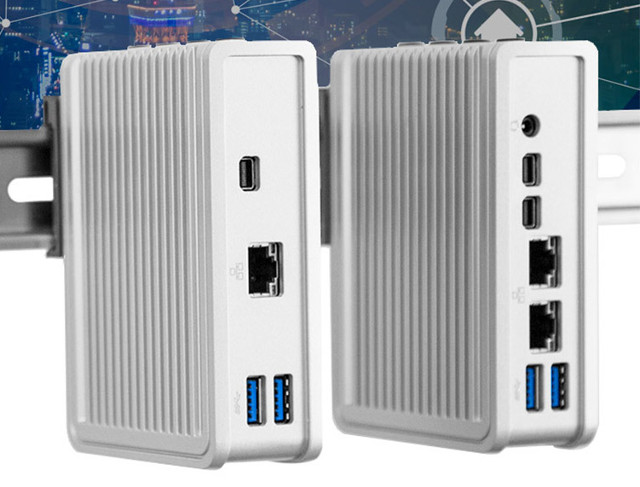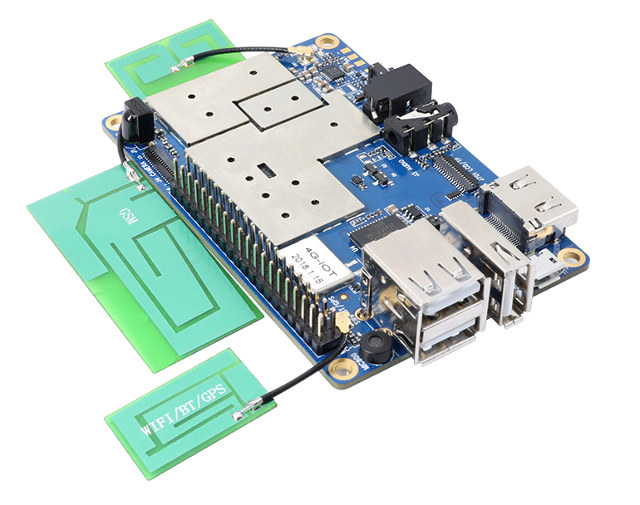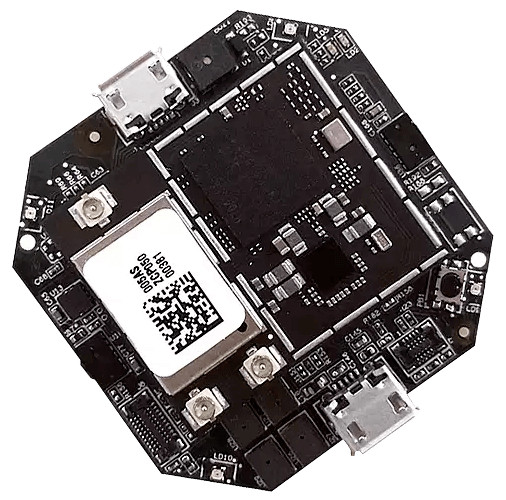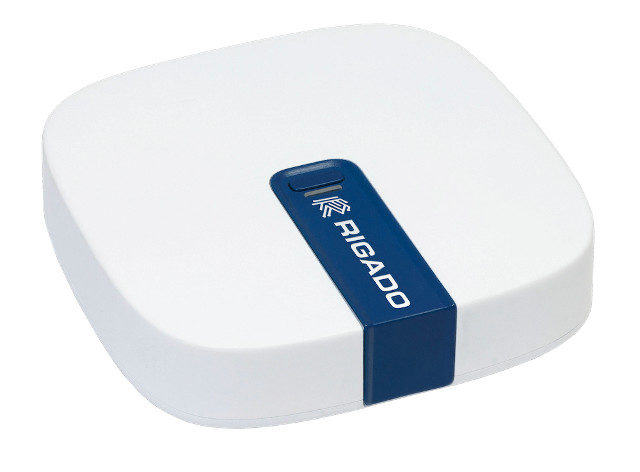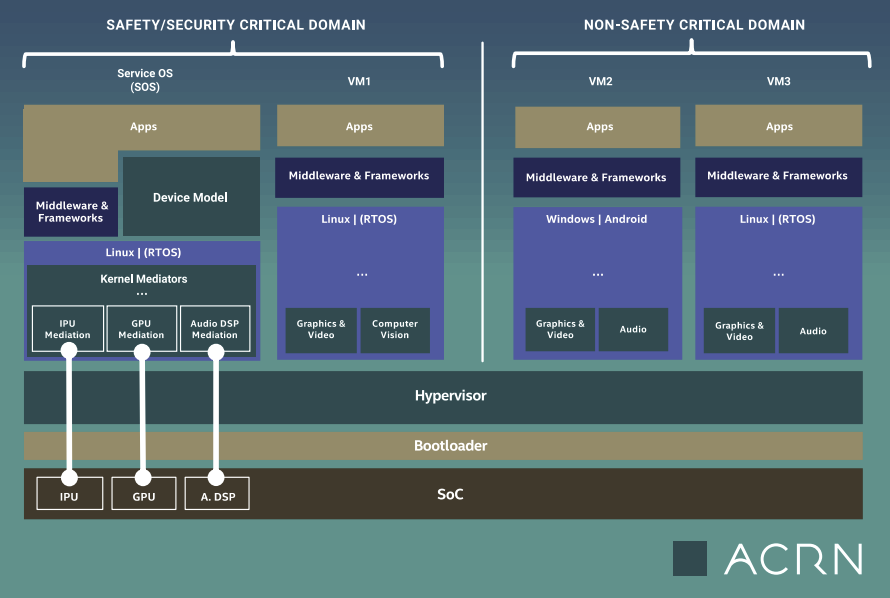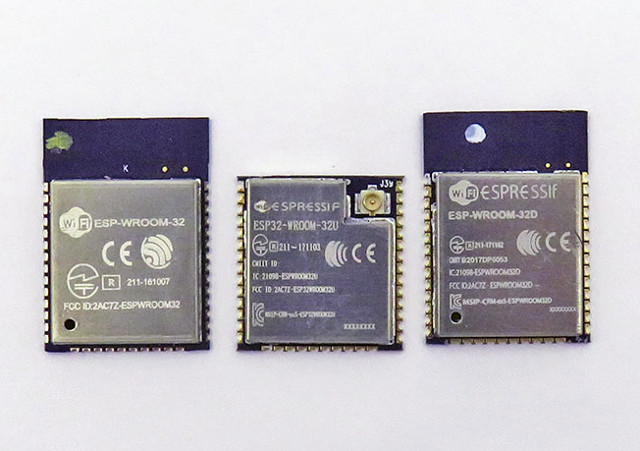After launching their ML350 customizable fanless industrial computer, Logic Supply is back with another Apollo Lake family of mini PCs – CL200 series – with a much more compact form factor (Ultra Small Form Factor), and equipped with an Intel Celeron N3350 processor. Two models are available for now with CL200 featuring 1 GB RAM, 8 GB storage and running Ubuntu 16.04, and CL210 with 2GB RAM, 32 GB storage, and shipping with either Windows 10 IoT or Ubuntu 16.04. Specifications: SoC – Intel Celeron N3350 dual core processor @ 1.10 / 2.40 GHz with Intel HD graphics 500 System Memory & Storage CL200 – 1 GB LPDDR4, 8 GB eMMC flash, mSATA Up To 1 TB, micro SD slot CL210 – 2 GB LPDDR4, 32 GB eMMC flash, mSATA Up To 1 TB, micro SD slot Audio – CL210 only: 3.5 mm audio jack (mic in, line out) Video […]
1NCE to Offer a 10 Euros Plan for 10-Year of Cellular IoT Connectivity in Europe
For the Internet of Things to be successful, prices need to come down sharply, and eventually LPWAN connectivity should be possible with $1 to $2 modules, $5 to $10 development boards like we can get for WiFi today. Cellular IoT hardware is likely to be a bit more expensive – even when using NB-IoT – but hardware prices have to come down to acceptable levels, and so is connectivity. 1NCE brings us in the right direction for the latter with a SIM card selling for 10 Euros offering 10-year of 2G/3G/NB-IoT connectivity (1 Euro per year) with 500MB data included. That’s about 140KB of data per day, which should be OK for applications like smart meters. There are no other fees, except if your device goes over the limit, but the company has not provided any pricing details for the extra data. The service will cover 30 countries in Europe. […]
Orange Pi 4G-IoT Development Board Launched for $45
Last year, Shenzhen Xunlong Software launched Orange Pi 2G-IoT board for just $9.90. Pricing was incredibly aggressive for a cellular board, but AFAIK the RDA Micro processor used in the design had never been used with Linux so for many people using the board was a challenge (and maybe still is), and some countries have already started to sunset 2G networks. So it only made sense for the company to work on a 4G board, and that’s exactly what they have done with Orange Pi 4G-IoT now launched for $45 + shipping on Aliexpress. Orange Pi 4G-IoT specifications: SoC – Mediatek MT6737 quad core Cortex A53 processor @ 1.1/1.3 GHz with Arm Mali-T720MP1 GPU System Memory – 1GB DDR3 Storage – 8GB eMMC flash + micro SD slot Video Output – HDMI, LCD display interface with touch panel support Audio – 3.5mm earphone jack, built-in microphone Cellular Connectivity nano SIM […]
RushUp KITRA Board Family is based on Samsung Artik 020, Artik 520/530, or Artik 710 Modules
Samsung first announced their Artik IoT modules almost three years ago, and until recently most Artik related products or development kits came from Samsung themselves, with no third party involved. But this has started to change recently with announcements such a Seeed Studio Eagleye 530s low cost development board based on Artik 530 module, and Resin.io Project Fin combining RPI CM3L module with an Artik 020 module for low power Bluetooth connectivity. But as I flicked through Resin.io supported hardware, I discovered they also supported Linux powered Artik 520 and Artik1020 module, as well as some new “KITRA” boards I had never heard of, and if we visit RushUp company website, we can see they have a bunch of Kutra boards and one IoT gateway based on Artik modules: KITRA 520 – Samsung ARTIK 520 product accelerator for advanced IoT KITRA 710 – Samsung ARTIK 710 product accelerator for advanced multimedia […]
Rigado Vesta IoT Gateway Runs Linux and Zephyr OS, Supports Bluetooth 5, 802.15.4, WiFi, Ethernet and Cellular Connectivity
I’ve recently read several open source software news related to Rigado IoT gateway, starting with Canonical announcement last month, that the gateway would ship with Ubuntu Core starting in summer 2018, and a few days ago it popped up again during Linaro CEO keynote at Linaro Connect HK 2018, as one of the first commercial devices to run the Zephyr OS, specifically its fully open source Bluetooth stack on a Nordic nRF52 chip. Rigado Vesta IoT gateway is not exactly new, as it was first announced in December 2016. The hardware relies on an NXP i.MX 6UL Cortex A7 processor, up to 256MB RAM, 4GB eMMC flash, and includes built-in support for dual band WiFi, Bluetooth Smart, Bluetooth 5/4.2, 802.15.4 (Thread), Fast Ethernet with PoE, as well as optional support for a cellular LTE Cat 1 modem. Rigado gateway hardware specifications: Processor – NXP i.MX6 UltraLite (G3) Arm Cortex A7 […]
FOSSASIA Summit 2018 Schedule – March 22-25
FOSDEM is the “Free & Open Source Software Developers’ European Meeting” takes place the first week-end of February every year in Brussels, Belgium. It turns out there’s an event in Asia called FOSSASIA Summit that’s about to take place in Singapore on March 22-25. There are some differences however, as while FOSDEM is entirely free to attend, FOSSASIA requires to pay an entry fee to attend talks, although there are free tickets to access the exhibition hall and career fair. There are also less sessions as in FOSDEM, but still twelve different tracks with: Artificial Intelligence Blockchain Cloud, Container, DevOps Cybersecurity Database Kernel & Platform Open Data, Internet Society, Community Open Design, IoT, Hardware, Imaging Open Event Solutions Open Source in Business Science Tech Web and Mobile Since the event is spread out over four days, it should be easier to attend the specific sessions you are interested in. I’ve […]
ACRN is an Open Source Hypervisor Built for IoT Device Development
ACRN – pronounced “acorn” – is an open source reference hypervisor with a small footprint, real-time capabilities, adaptability with support for Linux, Android, and RTOS guest operating systems, built for safety critical code in mind, and specifically designed for IoT and embedded devices. The project is managed / supported by the Linux Foundation. A few more details about some of the key features of the solution: Two main components: the hypervisor itself, and its device model complete with rich I/O mediators managed by Linux-based Service OS (SOS). Small footprint – Approx. 25K lines of code (LOC) for ACRN hypervisor against 156K LOC for datacenter-centric hypervisors. Real Time – Low latency, enables faster boot time, improves overall responsiveness with hardware communication Adaptability – Multi-OS support for guest operating systems like Linux, Android, RTOSes… Safety Criticality – Safety critical workloads have priority, isolation of safety critical workloads Built for Embedded IoT – Virtualization […]
ESP32-WROOM-32D / ESP32-WROOM-32U WiFi & Bluetooth Modules Deliver Better RF Performance
ESP-WROOM-32 is likely the most popular ESP32 WiFi + Bluetooth module on the market, but a few months ago, Espressif Systems unveiled two variants named ESP32-WROOM-32D / ESP32-WROOM-32U, which are based on ESP32-D0WD (5x5mm package) instead of ESP32-D0WDQ6 (6x6mm package), and are said to offer better RF performance ESP32-WROOM-32D is the most similar to ESP-WROOM-32 since it also comes with a PCB antenna, while ESP32-WROOM-32U is much smaller as it relies on an external WiFi/Bluetooth antenna via a u.FL connector. Both new modules are pin-to-pin compatible with ESP-WROOM-32 Key features: CPU – Espressif ESP32-D0WD dual core Tensilica processor Storage – 32Mbit SPI flash Crystal – 40 MHz Connectivity – Wi-Fi 802.11 b/g/n up to 150 Mbps, Bluetooth 4.2 LE I/Os – 38- catellagated pin with I/Os + GND plane Antenna ESP32-WROOM-32D – on-board antenna ESP32-WROOM-32U – u.FL connector for external IPEX antenna Dimensions ESP32-WROOM-32D – 18 x 25.5 x 3.1 […]


